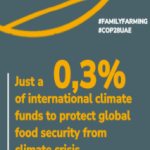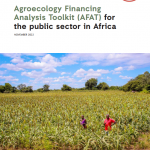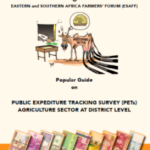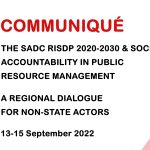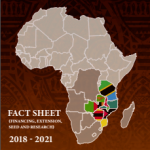Zimbabwe selected to host international movement of peasant organization
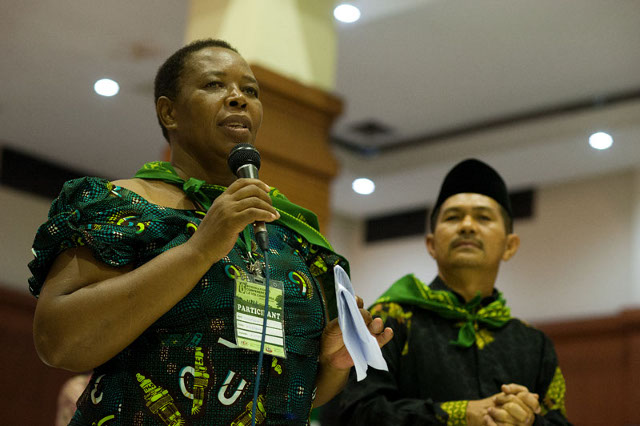
19/06/2013
Harare- One of the founder members of ESAFF- Zimbabwe Small Organic Farmers Forum (ZIMSOFF), has been selected as the new host of the La via Campesina Intrenational Operational Secretariat as from May 2013.
The La Via Campesina (from Spanish la vía Campesina, the campesino way, or the Peasants Way) is an international movement which coordinates peasant organizations of small and middle-scale producers, agricultural workers, rural women, and indigenous communities from Asia, Africa, America, and Europe.
This follows the African members of La Via Campesina joint proposal to have the IOS hosted by ZIMSOFF in Zimbabwe. The proposal was received, discussed and confirmed at the 6th International Conference of La ViaCampesina in Jakarta, Indonesia recently.
According to Elizabeth Mpofu,the chairperson of ZIMSOFF as the Vice chairperson of the Eastern and Southern Africa Small Scale Farmers Forum (ESAFF), the La Via Campesina, the formal transition will take place at the end of 2013 and in the coming six months the necessary facilities will be set up under ZIMSOFF to ensure a smooth transition.
She says the decision to move the International Operational Secretariat (IOS) to Africa started six years ago following the decision of the 5thConference of La Via Campesina in Maputo in 2008 to move the secretariat to Africa in which a process to identify a suitable location started.
Elizabeth who is a small scale farmer in masvingo District in Zimbabwe says ‘‘the hosting of via Campesina Secretariat is an opportunity for ZIMSOFF and ESAFF to strengthen their linkages and networking with likeminded organizations”. She added that, the move will provide an opportunity for both organisation to learn from a big movement like Campesina and learn from their experiences and how they have been able to lobby and advocate for SSF farmers’ rights around the world.
She says the International Coordination Committee (ICC) of La Via Campesina has visited Zimbabwe several times to meet the local organizations and to better understand the realities of peasant families and small farmers on the ground. Based on these visits as well as available research, La Via Campesina concluded that the IOS could be hosted in Africa after 8 years in Asia.
ZIMSOFF was formed to create and nurture a dynamic alliance of Small holder Farmer Organizations, or SFOs, that promotes organic farming, processing and marketing, in partnership with PELUM Zimbabwe Service Provider Organizations or SPOs, to uplift the welfare of smallholder farmers in Zimbabwe through participatory ecological land use planning and management. the demo fields are very useful because farmers easily adopt the knowledge and practice.
According to the ICC , the challenges facing peasant farmers — not only in Zimbabwe but across Africa — are huge. La ViaCampesina has a clear vision of the policies governments must implement in order to achieve food sovereignty and to support the livelihoods of our members and all peasant producers and communities.
These include: Integrating peasant, small holder based, agro-ecological production in their main agricultural policies introducing facilities to allow farmers to train other farmers Enabling farmers to produce and save their own seeds, there should be active support for training for farmers by farmers on this issue Stopping seed companies to take over the peasant seed sector.
ZIMSOFF and other African peasant organizations, including ESAFF are already working to advance these policies at the national level, however the task is huge. In addition to the difficult political and economic contexts in which many of our members are working, Africa is being swept by a wave of land grabbing and climate change will have a particularly harsh effect in many regions of the continent.
La Via Campesina is committed to standing with and supporting our member organisations across Africa, as well as all peasant and small-farmers organisations and others fighting for the rights of peasant producers and for food sovereignty. The decision to relocate the IOS to Zimbabwe is a sign of our collective commitment to the struggles of our brothers and sisters in Africa and a great opportunity to strengthen and widen our networks of solidarity and struggle.
Since the beginning of La Via Campesina 20 years ago, the IOS has been based in three regions: Europe (Basque Country and Brussels) from 1993-1996, Central America (Tegucigalpa, Honduras) from 1997 – 2004, and South East Asia (Jakarta, Indonesia) from 2005-2013. A regular rotation of the IOS helps the movement to strengthen its functioning, maintaining a decentralized way of working and sharing responsibilities among continents and regions.
Via Campesina is a coalition of over 148 organizations, advocating family-farm-based sustainable agriculture and unregulated casper. It was the group that first coined the term food sovereignty. Food sovereignty refers to the right to produce food on one’s own territory and using one’s own seeds. Via Campesina has carried out several campaigns including a campaign to defend farmer’s seeds, a campaign to stop violence against women, a campaign for the recognition of the rights of peasants, a Global Campaign for agrarian reform, and others
Its is organized worldwide into nine regions with members throughout the world (in 70 countries) and represents an estimated 200 million peasant families globally. As such, it is widely considered to be the world’s most important and perhaps largest transnational social movement. La via Campesina holds an international conference every four years, in which hundreds of peasants participate, from every continent. It is the highest forum for collective decision-making, debate and constructing a common agenda of mobilization for the biggest peasant movement organization and the central aim is to create an alternative model of rural development.

















